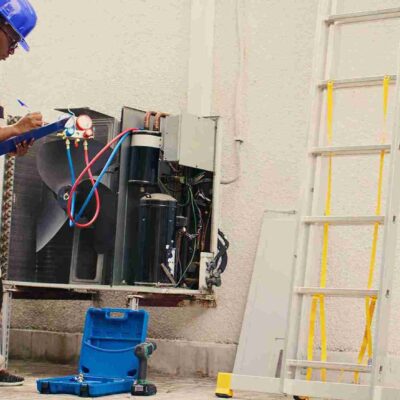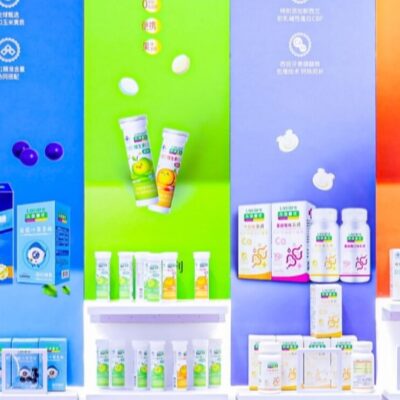Introduction
In the rapidly evolving world of specialty coffee, precision, repeatability, and data-driven insights are no longer optional—they are vital. Whether you’re a Q Grader analyzing quality, a researcher studying roast chemistry, or a producer profiling microlots, having the right tools makes all the difference. That’s where a lab grade coffee roaster comes in.
A lab grade coffee roaster is specifically designed for scientific accuracy, profiling capability, and educational versatility. These machines go far beyond basic roasting—they are instruments that deliver reproducible results under controlled conditions. Unlike home or even standard commercial roasters, lab grade models are engineered to give you absolute control over every variable that influences roast development.
At Coffee Pro Direct, we develop high-performance lab grade coffee roasters tailored to the needs of professionals in research, training, production, and quality control. This guide explores what defines a lab grade roaster, who needs one, and why they’re the essential tool for innovation and advancement in coffee science.
What Is a Lab Grade Coffee Roaster?
A lab grade coffee roaster is a high-precision, small-batch roasting machine engineered for professional use in laboratory environments. It enables consistent and measurable roast experiments with the ability to fine-tune key variables such as temperature, airflow, drum speed, and development time.
What Sets It Apart
-
Scientific Precision: Equipped with calibrated sensors, real-time data monitoring, and PID controllers
-
Reproducibility: Allows exact replication of roast curves and development stages
-
Flexibility: Ideal for testing a wide range of origins, processing methods, and roast styles
-
Education-Focused: Commonly used in coffee training institutions, research labs, and Q Grader programs
Lab roasters are purpose-built to help professionals analyze, control, and refine the chemistry and sensory outcomes of every roast.
Key Features of Lab Grade Roasters
The core of any lab grade coffee roaster lies in its engineering. These machines are developed for testing, analysis, and profile development—not mass production. They are compact, but powerful and intelligent.
Precision Control Systems
-
PID Controllers for stable temperature accuracy
-
Multiple Thermocouples monitoring bean, air, exhaust, and environmental temperatures
-
Variable Drum Speed for uniform agitation and heat application
-
Airflow Adjustment to control convection intensity
Real-Time Data Logging
Lab roasters from Coffee Pro Direct are compatible with software like Artisan or Cropster, enabling detailed roast profiling, analysis, and data sharing.
Repeatability
The ability to repeat a roast curve exactly is critical in lab settings. Our machines allow you to lock variables, replicate conditions, and compare batches accurately.
Batch Size Versatility
Typical batch sizes for lab roasters range from 50g to 500g, though some advanced models may roast up to 1kg. These smaller batches are ideal for cupping and quality control without wasting expensive green coffee.
Consistent Cooling Systems
Rapid cooling is essential to halt the roast process immediately. Our lab roasters include high-performance cooling trays and fans for consistent post-roast handling.
Who Needs a Lab Grade Coffee Roaster?
Coffee Importers and Exporters
For green coffee evaluation, sample roasting, and client previews, lab roasters provide reliable insights into bean potential.
Specialty Roasters
Before scaling to production, roasters test and develop profiles using lab-grade equipment to ensure optimal flavor outcomes.
Q Graders and Cupping Labs
Certifications and sensory evaluations rely on consistent roast standards. Lab roasters help ensure calibration across staff and sessions.
Coffee Research Institutions
Scientific studies on roast chemistry, bean development, and volatile compounds require equipment with controlled input and precise measurement.
Roasting Instructors and Training Programs
Educators use lab roasters to teach roast development, sensory differentiation, and the science behind heat application.
Advantages of Lab Grade Coffee Roasters
Reproducibility and Scientific Integrity
Every batch can be recorded, analyzed, and repeated—essential for quality assurance and research documentation.
Minimal Green Coffee Waste
Small batch sizes mean you can test multiple roast levels or origins without committing large volumes of green coffee.
Efficient Learning Environment
Training new roasters on a lab-grade machine accelerates their learning curve by offering visual, tactile, and analytical feedback on every stage.
Full Roast Curve Control
Adjust airflow, drum speed, heat input, and fan speed independently to observe how each variable impacts flavor, color, and development.
Side-by-Side Profile Testing
In a lab setting, you can run multiple roasts in a single day, comparing time-to-crack, development ratios, and post-roast cupping results.
Why Coffee Pro Direct for Lab Grade Roasters?
At Coffee Pro Direct, we manufacture lab roasters to exacting standards. Our designs prioritize control, consistency, and longevity.
Built for Experts
Whether you’re a Q Grader, roaster, or professor, our machines are trusted for advanced analysis and dependable results.
Custom Configuration
Need a specific thermocouple layout? Prefer dual-control zones or programmable profiles? We offer configuration options for every use case.
Durable Engineering
Stainless steel chambers, heavy-duty motors, and modular components ensure our machines last in high-frequency lab use.
Global Support
With customers in over 40 countries, we offer onboarding, maintenance, and calibration support to keep your lab operating at peak precision.
Common Use Cases for Lab Roasters
Profile Development for Production
Lab roasters help create the perfect roast curve before scaling up to a 5kg, 15kg, or 30kg production batch.
Sensory Training
Educators use lab roasters to demonstrate how small changes in roast time or heat can influence sweetness, acidity, or bitterness.
Coffee Research and R&D
Roast experiments are used to measure Maillard reaction variables, roast defect thresholds, and post-roast aging behavior.
Pre-Shipment Evaluation
Producers roast sample batches of export-ready coffee to verify moisture content, flavor development, and cup quality.
Lab Roaster vs. Sample Roaster vs. Commercial Roaster
| Feature | Lab Roaster | Sample Roaster | Commercial Roaster |
|---|---|---|---|
| Batch Size | 50g–1kg | 50g–200g | 5kg–120kg |
| Intended Use | Testing, profiling, R&D | Pre-purchase evaluation | Full-scale production |
| Data Logging | Yes | Limited | Yes |
| Variable Control | Full | Moderate | Full |
| Ideal Environment | Labs, schools, training | Cupping rooms | Roasteries, factories |
Lab roasters are the most versatile for controlled experimentation and educational environments.
The Lab Roasting Process
Step 1: Sample Preparation
-
Weigh and record green coffee data
-
Document origin, moisture content, and processing method
Step 2: Preheating
-
Heat the roaster to the exact charge temperature
-
Stabilize environmental conditions
Step 3: Charging and Roasting
-
Load green coffee and begin roast logging
-
Monitor bean temperature, environmental temperature, and RoR
-
Adjust airflow, heat input, and drum speed based on experiment goals
Step 4: Development and Drop
-
Observe first crack and record the timestamp
-
Extend development time based on flavor objectives
-
Drop the coffee into a cooling tray at the precise endpoint
Step 5: Evaluation and Logging
-
Cool and rest the coffee (usually 12–24 hours)
-
Perform cupping evaluations and score the results
-
Compare roast data with sensory feedback
At Coffee Pro Direct, we encourage maintaining detailed roast logs to support learning, consistency, and traceability.
How to Choose the Right Lab Roaster
When selecting a lab grade coffee roaster, consider your use case, data needs, and desired throughput.
Batch Size
Choose a roaster that fits your lab’s daily workload. Typical sizes range from 100g to 1kg.
Temperature Accuracy
Ensure it includes calibrated sensors and PID control for consistent readings.
Software Integration
Look for Artisan or Cropster compatibility to simplify analysis and documentation.
Build Quality
Opt for machines with industrial-grade components that can withstand repeated use in busy labs.
Cooling System
Quick and even cooling preserves flavor integrity—an essential for valid sensory testing.
Maintenance Tips for Lab Roasters
-
Daily: Clean chaff collectors, empty cooling trays, and wipe internal chambers
-
Weekly: Inspect probes and test airflow paths for obstructions
-
Monthly: Calibrate temperature sensors and test software connectivity
-
Annually: Conduct full maintenance check for wear, belts, motors, and fans
Regular care ensures your lab results remain accurate and your machine remains dependable.
Conclusion
The lab grade coffee roaster is a powerful instrument that sits at the heart of coffee innovation, education, and quality control. Its design prioritizes precision, control, and data integrity—qualities that are non-negotiable in professional coffee environments. Whether you’re creating new roast profiles, certifying future Q Graders, or conducting coffee chemistry research, this roaster gives you the edge in understanding and perfecting the roast process.
At Coffee Pro Direct, our lab grade roasters help elevate the standards of the coffee industry worldwide. Built with precision engineering and supported by expert service, they’re trusted by professionals who refuse to compromise on quality, data, or control.
FAQs
Q1: What is the typical batch size of a lab roaster?
Most lab grade roasters handle batch sizes between 50g and 1kg, allowing multiple tests with minimal green coffee waste. They are optimized for cupping, research, and training—not large production.
Q2: How does a lab roaster differ from a sample roaster?
While both can roast small batches, lab roasters offer more control, data logging, and repeatability. Sample roasters are often simpler and used primarily for pre-purchase cupping.
Q3: Is software integration important in lab roasters?
Yes. Integration with Artisan or Cropster allows accurate logging of temperature curves, rate of rise, and development times, which are essential for experimentation and repeatability.
Q4: Can lab roasters be used for commercial production?
They are not designed for volume production, but many roasters use lab machines to develop and test profiles before transferring them to commercial-scale roasters.
Q5: Why should I choose Coffee Pro Direct’s lab roasters?
Coffee Pro Direct designs lab roasters with unmatched control, durability, and support. Our machines are used globally in Q Grader programs, research institutions, and leading specialty coffee labs.





